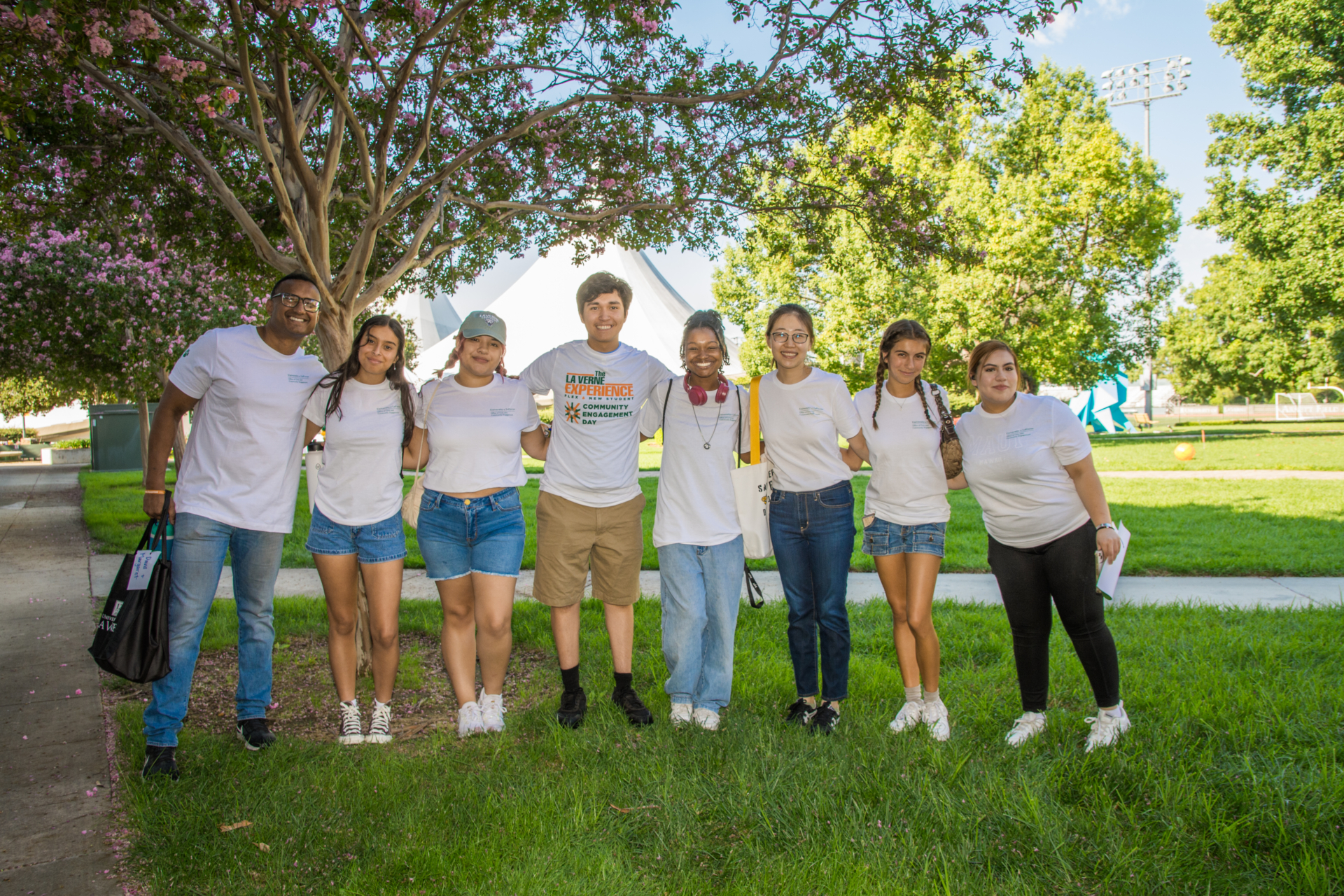The General Education program at the University of La Verne fosters transformative experiences by promoting the integration of theoretical knowledge with practical application. The program supports the university’s core values while emphasizing critical thinking, innovative problem-solving, and an awareness of interconnectedness and a sense of belonging among both local and global communities.
GE Program Learning Outcomes:
LO 1: EXPANDING YOUR MIND
Students will explore a wide array of courses, disciplines, and ideas to understand a diversity of perspectives, from local to global. Through disciplinary depth and interdisciplinary connections, students will expand their minds, engage in innovative, multidisciplinary thinking, and move beyond their own social and cultural comfort zones.
Students will be able to:
- Demonstrate an understanding of the complexity of cultures.
- Demonstrate foundations of disciplinary knowledge and apply integrated knowledge in multidisciplinary settings.
- Demonstrate persistence and initiative in overcoming academic obstacles.
- Learn new technologies and explore their application in academic and professional settings.
LO 2: DEVELOPING YOUR VOICE
Students will engage in self-discovery of and self-reflection on individual and social identities using varied modes of communication to explain, analyze, and express the meaningfulness of these identities. Students will explore these identities and connections with their communities, taking risks and communicating their ideas in critical and creative ways, through various genres and for various rhetorical purposes.
Students will be able to:
- Use written, oral, and non-verbal mediums, including multimodal and/or digital means, to communicate clearly, ethically, and purposefully.
- Demonstrate various rhetorical approaches and use a variety of genres to connect with diverse audiences, reflecting an awareness of how communication expresses ideas about identity and social power.
- Demonstrate confidence in communicating for various rhetorical purposes.
LO 3: ASKING CRITICAL QUESTIONS
Students will analyze and synthesize diverse information and construct evidence-based, coherent explanations of complex issues to enhance their intellectual growth. Moreover, students will learn to critically challenge assumptions, articulate informed perspectives, and defend their viewpoints logically within diverse social, cultural, and ethical contexts.
Students will be able to:
- Analyze complex issues to deepen understanding of underlying assumptions.
- Integrate information from diverse sources to construct coherent and evidence-based explanations.
- Evaluate personal perspectives and the positions of others to enhance ethical understanding.
- Formulate well-reasoned responses and questions that address ethical ramifications and multiple viewpoints.
LO 4: GENERATING CREATIVE SOLUTIONS
Students will develop their capacity to work collaboratively in broadening their understanding of the complex, interconnected challenges facing the world. They will generate innovative solutions based on an interdisciplinary synthesis and evaluation of existing ideas with wide-ranging applicability.
Students will be able to:
- Research, examine, and define a problem while being sensitive to the ethical, logical, and cultural dimensions of that problem.
- Explore their existing knowledge of a problem, and actively seek out untested and potentially risky avenues for crafting viable solutions.
- Collaboratively develop and articulate a logical, consistent plan to solve the problem, which integrates alternate, divergent, or contradictory perspectives.
- Formulate potential solutions in keeping with the history of the problem while evaluating the feasibility of implementing each solution.
LO 5: SERVING YOUR COMMUNITIES
Students will apply their academic knowledge and personal experiences to actively contribute to communities. These service experiences will help them develop collaboration skills to work with diverse teams. By becoming agents of service and change, students can gain a deeper understanding of the confluence between community and social responsibility while also developing an awareness of issues related to sustainability and social justice.
Students will be able to:
- Demonstrate teamwork and leadership skills to foster inclusivity and equity.
- Analyze and evaluate the effects of service activities on sustainability and social justice.
- Reflect on personal and academic growth as agents of service and change in communities.
